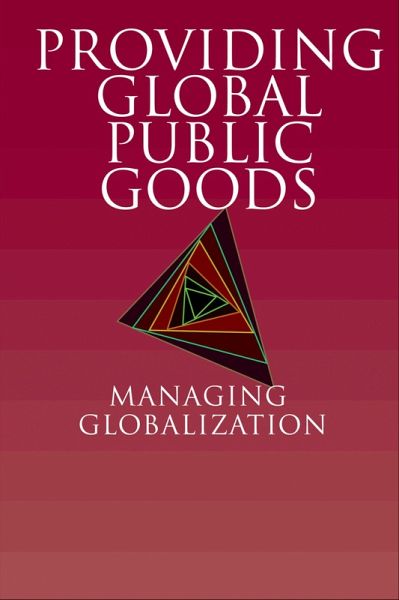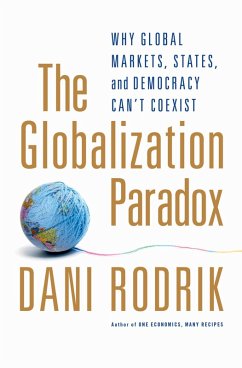
Providing Global Public Goods (eBook, PDF)
Managing Globalization
Redaktion: Kaul, Inge; Mendoza, Ronald U.; Le Goulven, Katell; Conceicao, Pedro
Versandkostenfrei!
Sofort per Download lieferbar
40,95 €
inkl. MwSt.
Weitere Ausgaben:

PAYBACK Punkte
20 °P sammeln!
Elaborating on the concepts first introduced in Global Public Goods, this book addresses the long overdue issue of how to adjust the concept of public goods to today's economic and political realities. The production of global public goods requires the orchestration of initiatives by a large number of diverse actors across different levels and sectors. It may require the collaboration of governments, business and civil society, and in most cases it almost certainly calls for an effective linkage of the local, national, regional, and global levels. In light of today's new realities, this book e...
Elaborating on the concepts first introduced in Global Public Goods, this book addresses the long overdue issue of how to adjust the concept of public goods to today's economic and political realities. The production of global public goods requires the orchestration of initiatives by a large number of diverse actors across different levels and sectors. It may require the collaboration of governments, business and civil society, and in most cases it almost certainly calls for an effective linkage of the local, national, regional, and global levels. In light of today's new realities, this book examines a series of managerial and political challenges that pertain to the design and implementation of production strategies and the monitoring and evaluation of global public goods provision.As participatory decision-making enhances the political support for - and thus the effectiveness of - certain policy decisions, this volume offers suggestions on a number of pragmatic policy reforms for bringing the global public more into public policy making on global issues. Nine case studies examine the importance of the global public good concept from the viewpoint of developing countries, exploring how and where the concerns of the poor and the rich overlap.Providing Global Public Goods offers important and timely suggestions on how to move in a more feasible and systematic way towards a fairer process of globalization that works in the interests of all.
Dieser Download kann aus rechtlichen Gründen nur mit Rechnungsadresse in A, B, BG, CY, CZ, D, DK, EW, E, FIN, F, GR, HR, H, IRL, I, LT, L, LR, M, NL, PL, P, R, S, SLO, SK ausgeliefert werden.













